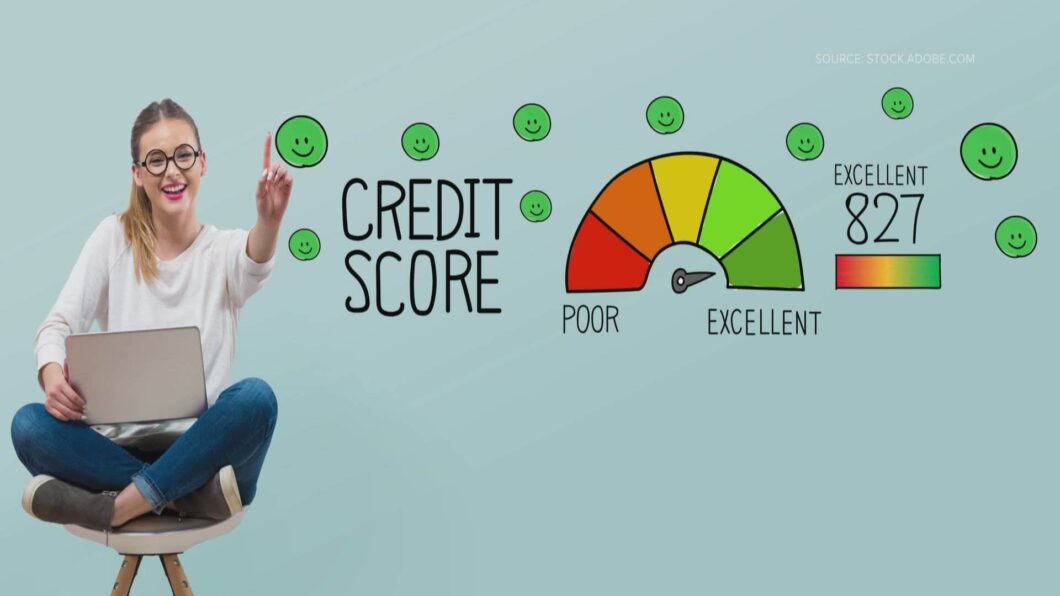Navigating life in the USA as an international student comes with a unique set of challenges, especially when it comes to build credit score. Unlike in many other countries, a good credit score in the USA is crucial for various aspects of daily life, from renting an apartment to secure a mobile phone plan. However, as an international student, starting with no U.S. credit history can make the process daunting.
Understanding how to build credit score is essential for long-term financial health. Your credit score is like a school report card of your financial behavior. A good credit score can open doors to better financial opportunities, lower interest rates on loans, and even better job prospects. This guide will walk you through the necessary steps and strategies to establish and grow your credit score effectively while managing your finances responsibly.
Understanding the U.S. Credit System:
Before diving into the practical steps to build credit score, it’s important to understand the basics of the U.S. credit system and why a good credit score matters.
What is a Credit Score?
A credit score is a numerical value ranging from 300 to 850, representing your creditworthiness. It is calculated based on several factors, including your payment history, the amount of debt you owe, the length of your credit history, the types of credit accounts you hold, and recent inquiries into your credit. This score helps lenders assess the risk of lending you money or extending credit.
Why is Good Credit Score Important?
A high credit score can significantly impact your financial life in the USA. It influences your ability to:
- Secure Loans and Credit Cards: Higher scores usually lead to better interest rates and terms, especially when applying for mortgages or wanting business credits.
- Rent Apartments: Landlords often check credit scores to evaluate potential tenants. A good credit score reflects your good financial behavior and assures the landlords that you will be able to pay your rent on time.
- Get Insurance at Lower Rates: Insurers may offer lower premiums to individuals with good credit.
- Qualify for Employment: This might be surprising for any international student that companies in USA often use credit score as a benchmark of judging how financially responsible a person is. A person is good at managing personal finance is often trusted as a responsible person for the financial management of a company.
Key Components of a Credit Score:
Credit scores are calculated using models like FICO and Vantage Score, each weighing factors slightly differently. However, they generally consider:
Payment History (35%):
Your record of paying bills on time e.g. your monthly credit card bills, utilities etc. You might want to setup automatic payment for your minimum credit card dues and utilities. If you just miss one payment it will badly impact your credit score and will also incur fines.
Credit Utilization (30%):
You should try to maintain your credit utilization below 30% of your approved credit line. For example, if you have one credit card which has a 1000 USD limit, then you should try to keep your spending around 300 USD from your credit line. Never think of maxing out a credit card. If you do then try to repay the debt in full or at least 70% before the upcoming billing cycle.
Length of Credit History (15%):
Your length of credit history plays a significant role in building your credit score. Sometimes, people apply for multiple credit cards to get some promotional offer such as cashback or bonus points, etc. Then they realize that in their day-to-day life, they are only using 2 or 3 credit cards max. For example, one for groceries and gas that gives maximum cash back and one for travelling. Eventually, you will not use all of your approved credit cards and will close it. The credit history belonging to those closed cards will eventually get wiped out and will not have any impact on our long-term credit score. Therefore, you should apply for and use those credit cards that you will use in the long run.
Types of Credit (10%):
Having variety of credit accounts such as retail, installment, and credit card accounts, can positively influence your credit score. For example, you might want to have a store credit card and one credit card from a major company.
Recent Credit Inquiries (10%):
New credit applications will have an impact on your credit score. You should not apply for back-to-back credit cards eventually, this will badly influence your credit behavior. Perhaps, you can apply for extra credit card that offers cash back or bonus points before any big purchase.

Steps to Build Credit Score as an International Student:
Starting with no credit history can be challenging, but there are several ways you can begin to build credit score as an international student:
Open a U.S. Bank Account:
The first step to integrating into the U.S. financial system is opening a bank account. Having a checking and/or savings account with a U.S. bank is essential for managing your money, paying bills, and accessing financial services that can help build your credit. When opening a bank account, look for student-friendly accounts with minimal or no fees. Some US banks offer opening benefits, e.g., cash bonus. If you have a direct deposit from the opening day of your account up to a qualified amount, then they will offer you some cash.
Get a Secured Credit Card:
Secured credit cards are a great option for those without an established credit history. Almost all major credit companies offer secured credit cards to new users. These cards require a cash deposit as collateral, which typically serves as your credit limit. Using a secured credit card responsibly by making small purchases and paying off the balance each month can help you build a positive credit history.
Become an Authorized User on a Family Member’s Card:
This might not apply to all international students, but if you have a family member with good credit, consider becoming an authorized user on their credit card. This means you’ll have access to their credit card, and their credit history on that account will appear on your credit report. Ensure the primary cardholder maintains good credit habits, as their actions will impact your credit. Again, they might or might not trust you regarding this because your financial behavior will also impact their credit score.
Apply for a Credit-Builder Loan:
Credit-builder loans are specifically designed to help people with no credit or poor credit establish a positive credit history. With a credit-builder loan, the amount you borrow is held in a savings account until you repay the loan. Your payments are reported to the credit bureaus, helping you build credit score over time. Please be watchful about the interest rate. You would not definitely want to burn a fortune to build a credit score.
Tips for Managing Your Credit Responsibly:
Building credit is only half the battle; managing it responsibly is crucial for maintaining a good score. Here are some tips to help you manage your credit effectively:
Make Timely Payments:
Your payment history is the most significant factor in your credit score. Always pay your bills on time, including credit card payments, utility bills, and any loans. Setting up automatic payments or reminders can help ensure you don’t miss any due dates.
Keep Your Credit Utilization Low:
Credit utilization refers to the percentage of your available credit that you’re using. It’s best to keep this ratio below 30% of your total credit limit. For example, if you have a credit card with a $1,000 limit, try to keep your balance below $300.
Regularly Check Your Credit Report:
Monitoring your credit report allows you to track your progress and catch any errors or signs of identity theft early. You are entitled to get a free credit report from each of the three major credit bureaus which are Equifax, Experian, and TransUnion. Your can also open an account with Credit Karma, and regularly monitor your credit scores and debts associated with all your credit accounts.
Avoid Excessive Applications for Credit:
Each time you apply for a new credit account, a hard inquiry is recorded on your credit report, which can temporarily lower your score. Be selective about the credit accounts you apply for and avoid multiple applications within a short period.
Building a credit score as an international student in the USA may seem challenging, but it is entirely achievable with the right approach and commitment. By understanding the U.S. credit system, starting with foundational steps like opening a bank account and getting a secured credit card, and managing your credit responsibly, you can establish a strong credit profile. This will not only enhance your financial opportunities while studying in the USA but also pave the way for a secure financial future.
Have you encountered challenges while trying to build credit score in the USA? Share your experiences and tips in the comments below!


Pingback: How to Budget as an International Student in USA? - gradbunker.com